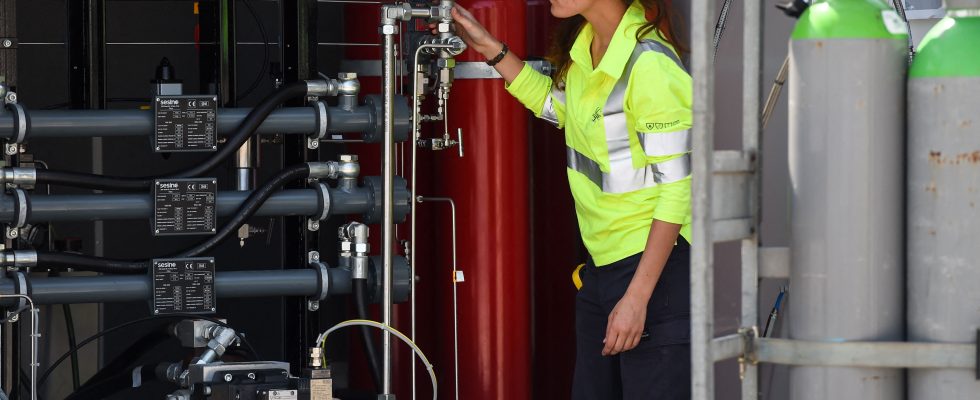One road to the south, another to the north… The map of the future European hydrogen supply network is starting to take shape. But a question remains: to what extent will France be part of this new network?
In his Paris office, Pierre-Etienne Franc, general manager of Hy24, comments on the progress of the various projects. H2Med? This pipeline linking Barcelona to Marseille and recently expanded to Germany should ultimately transport 10% of the European Union’s hydrogen needs. “But it has been progressing in fits and starts in recent years. In other regions, things are going much faster,” says the man who heads the world’s largest investment fund dedicated to hydrogen. So, in the future, most transit could go through the North Sea and the Benelux, with pipelines connecting the port of Rotterdam to the industrial Ruhr region. Further south, two other routes jostle, one starting from the Maghreb towards Italy and the other passing through Greece.
Future hub?
Germany, which relies heavily on hydrogen to decarbonize its energy mix, is closely following these developments. “Its diplomats are busy all over the Mediterranean in order to “source” the molecule for decades to come. They are even prospecting as far as Namibia, even if this country is not one of the most credible suppliers,” continues Pierre -Etienne Franc. France has not yet undertaken this type of exercise. Focused primarily on national hydrogen production, it has just opened the door to future imports, without setting specific objectives. Although pragmatic, this new direction is raising eyebrows among national producers. “We are moving away from the energy sovereignty objective of the European plan adopted after the start of the war in Ukraine,” Matthieu Guesné, CEO of Lhyfe, a company specializing in the production of green hydrogen, recently emphasized in the press.
Situated between the Iberian Peninsula, focused on wind and photovoltaic farms, and major hydrogen consumption centers such as Germany, France nevertheless has an interest in becoming a hub through which precious molecules pass. “It would not cost it very much, because it could monetize its status as a transit zone. In addition, it could help its electro-intensive industries by providing them with hydrogen at a more competitive price. Finally, it would need less to subsidize local production”, says Pierre-Etienne Franc.
But finding the right balance between national production and imports will not be easy. The government has mandated its administration to prepare a report on the subject. “The more hydrogen production is delocalized to regions with competitive costs, the greater the risk of seeing industries relocate as close as possible to the places of production,” warns professor of hydrogen geopolitics at Sciences po Mikaa Blugeon -Mered. While waiting for a clearer position from France, Spain is reportedly studying the possibility of delivering its hydrogen to Rotterdam… by boat.
.
